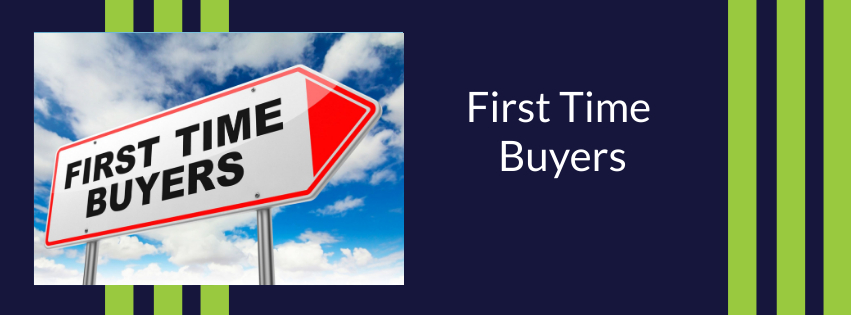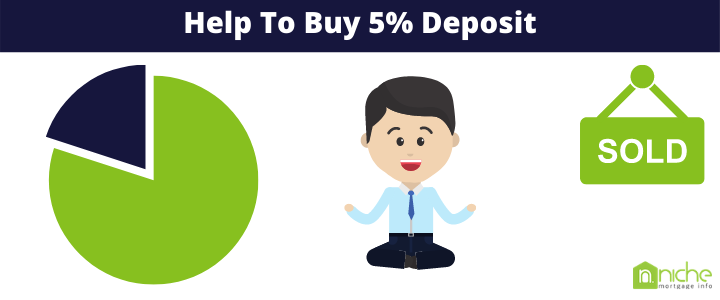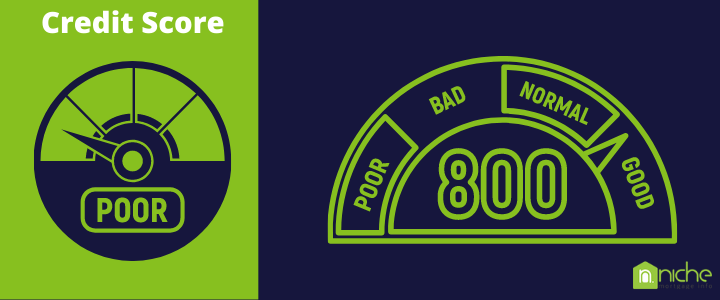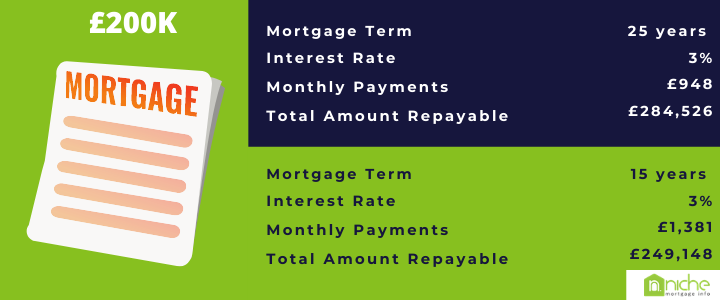First Time Buyers Mortgage Guide Post Covid
 Buying a home is a huge investment, perhaps the biggest one you will ever make. This is why it is important that you understand the process and the external factors that will impact your application. Securing a mortgage for the first time can be daunting. And with so many new terms to learn, you might quickly feel out of your depth. Minimum deposits, interest rates, legal structures and repayment terms can leave you feeling like you need to go back to school.
Buying a home is a huge investment, perhaps the biggest one you will ever make. This is why it is important that you understand the process and the external factors that will impact your application. Securing a mortgage for the first time can be daunting. And with so many new terms to learn, you might quickly feel out of your depth. Minimum deposits, interest rates, legal structures and repayment terms can leave you feeling like you need to go back to school.
Securing the right mortgage for your needs is no longer about looking for the lowest rate of interest. In many cases, finding a mortgage that you are most likely to be accepted for is the way forward. As banks tighten their lending criteria, the task of getting a mortgage is about much more than just finding a great deal. By educating yourself on the process of securing a mortgage, you will be in a much better position to secure a great deal, even in a post-Covid world.
Saving for a deposit
The days of 100% mortgages are long gone. Lenders are no longer willing or able to take this risk, so if you’re hoping to get on the property ladder, it’s time to start thinking about deposits. Saving a healthy-sized deposit can help to secure a better interest rate. It will also reduce the amount you pay back in the long term, so it’s worth offering as much as you can afford.

In an ideal world, you would save a deposit that is equal to 20% of the value of the property. This will give you access to the best lending rates and increase your chances of being accepted. If you are unable to save this much, don’t worry, there are ways around this. You could make use of the Government’s Help To Buy scheme, which only requires a 5% deposit. Or you could look into shared equity homeownership.
Sprucing up your credit score
Lenders not only want to see that you have been able to save a sizable deposit. They also want to see that you are generally responsible with your money. To do this, they use credit scores and credit history files to assess your history and experience with money. If you have a history of poor financial management, this could lead to your application being rejected, or subject to a higher interest rate.
Not everyone is well versed in credit history and reporting, but you’ll need to get familiar before you submit your mortgage application. There are three main credit checking agencies in the UK; Experian, Equifax and TransUnion. These companies collect information about your credit cards, bank accounts and other credit facilities such as utility accounts. They also collect information about missed payments, CCJs and bankruptcies.

If you always make your payments on time and keep your credit utilisation under 50% of your limit, you should have no trouble passing this stage of the application. However, if you have a few blemishes on your record, you might want to spend a few months cleaning up your report. At the very minimum, registering to vote at your current address will ensure that the bank can confirm your identity without extensive checks. You can check your score here.
Proving your income
Lenders want to know that your mortgage is affordable at the moment and will be affordable in the future. This means you will need to provide proof of income. For some people, this is as simple as digging out your P60. Your employer should give you one of these at the end of every year. It outlines your income and any tax paid.
If you are self-employed, the process becomes slightly more complicated. Many lenders will ask to see three years of accounts, and some will want to see these prepared by an accountant. If you are unable to provide three years of accounts, the application process might be more difficult, but not impossible. You may have to approach specialist lenders that are more accustomed to working with the self-employed. The more information you can provide, the better.
Lenders may also ask to see the last three months of your bank statements. They are looking for signs of irresponsible spending, so try to keep this in check in the months running up to your application. Some things can raise an eyebrow for lenders, and some will rule you out entirely. Using betting websites is one category of spending that lenders typically don’t want to see on your bank statements.
Choosing your mortgage term
Once you have reached this stage in your application, it’s time to start thinking about mortgage terms. The term is how long you want to spend paying back the mortgage. The mortgage term is typically determined by how much you can afford to pay every month, but it can be helpful to push this to the upper limit to reduce the amount you pay back in total.
Lenders consider a short term mortgage to be under 20 years and a long-term mortgage to be over 30 years. The majority of first-time buyers will opt for a 25-year mortgage, but you can extend this or shorten is as required. While a shorter term will cost less in interest, your monthly payments will be much higher. Conversely, a long-term mortgage will cost a lot more in interest over the duration of the mortgage, but your monthly payments will be lower.

Consider the cost of a £200,000 home on a mortgage with a fixed interest rate of 3%. With a 25 year mortgage, your monthly payments would be £948 and the total amount repayable would be £284,526. But on a 15-year mortgage, your monthly payments would be £1,381 and the total amount repayable would be £249,148. This is a significant difference in the cost of the mortgage.
Understanding how your repayment terms will impact the cost of your mortgage in the long term is vital to securing a good deal. Looking for a deal that offers the lowest monthly repayments could save you a few hundred in your monthly repayments, but this could add up to tens of thousands in interest payments over the life of the mortgage.
Understanding mortgage rate structure
Perhaps the most difficult part of mortgages for first-time buyers to understand is the mortgage rate structure. This is the package that will tell you how much interest you will pay for the lifetime of your mortgage. This can be broken down into two types of mortgage; fixed and variable rate. To help you understand how each type will impact your repayments, we’ve broken them down in further detail below.
Fixed-rate mortgage
With a fixed-rate mortgage, the interest rate will be fixed for the lifetime of your plan. This will allow you to plan and budget, as you’ll always know what your monthly repayments will be. Interest rates in the country can increase or fall, and this will have no impact on your repayment plan.
This type of mortgage will typically be offered based on the Bank Of England base rate at the time of your application. But expect this rate to be higher than other mortgage rates. This is because banks are unable to predict the future and need to mitigate against the risk of a rise in interest rates. Likewise, if the Bank Of England decides to drop interest rates, you won’t be able to take advantage of this.
Variable-rate mortgage
In the case of a variable rate mortgage, your interest rate and your monthly repayments will vary depending on adjustments to the interest rates. In 2009, the Bank Of England base rate fell from 5% to 0.5% in just 12 months. Anyone on a variable rate mortgage during this time would have enjoyed a significant drop in their monthly repayments.
Likewise, if the interest rates increase, you could see your monthly repayments increase, too. So, there is the risk that you could end up paying more every month, but some people are happy with this risk as it means they could also end up paying less.
The interest rate isn’t always linked to the Bank Of England base rate. The lender sets the interest rate, so they can change it as they see fit. Interest rates will typically change depending on the economy. In a slow economy, lenders will typically lower interest rates to encourage people to spend their money instead of saving.
If you would like a mortgage that is linked to the Bank Of England base rate, this is called a tracker mortgage. This will increase or decrease depending on the Bank Of England base rate movements. The base rate is currently at 0.1%, but don’t get too excited. A tracker rate mortgage will be a specific percentage above the Bank Of England base rate. So if your rate was set at 1% above the base rate, your interest rate would now be 1.1%. But in October 2008, the Bank Of England base rate was 4.5%, so your interest rate would have been 5.5%.
The biggest benefit of this type of mortgage can be seen in times of low interest rates. During this time, you should be increasing your monthly payments and overpaying when possible. This will allow you to pay off the mortgage in a shorter term.
Look out for monthly introductory rates
When shopping around, keep your eyes peeled for introductory offers. A mortgage is a huge investment, and lenders want to get as many customers as possible. This is why they create compelling introductory offers to help land your business. This might include a low interest rate for a fixed amount of time, which switches to a variable rate after this period.
The fixed-rate could be a lengthy period, even up to 10 years, so this could be a great way to enjoy some financial security and fix your expenses for this period. If you can use this time to overpay your mortgage every month, you could remortgage your property once the fixed period has come to an end and be in a much better position.
Other expenses to consider
Buying your first home will come with quite a few unexpected expenses that could catch you off guard. According to Money Saving Expert, the additional costs of buying a home have increased by 300% in the past 10 years. Make sure you factor in the following expenses when purchasing your first home.
Arrangement fee
This is charged by your lender for setting up the mortgage. This might be a fixed amount or a percentage of the mortgage value. While some will ask for this payment upfront, others will allow you to add this to the cost of your mortgage. Remember that this means you will be paying interest on the fee, so it might be better to offer a smaller deposit and pay this off upfront.
Valuation fee
Before a lender will approve your mortgage, they need to check that the property is worth what you are planning to pay for it. This will protect them from loss if they have to repossess your home. The valuable part of the application process is paid to a third party valuable company to provide a bank-approved valuation.
Legal fees
Legal fees cover a number of different steps, and all of these can be referred to as ‘conveyancing’. This is a process that includes all of the legal checks, the handling of the deposit, and the legally transferring the property ownership into your name. Some lenders will cover the cost of conveyancing in their introductory offer, so this is a great way to save money for the move.
Post-covid mortgage recap
Applying for a mortgage post-covid is still a complicated process, but this could be an excellent time to get on the property ladder. If your job is secure and you’ve taken the opportunity to boost your savings, this could be the ideal time to secure an excellent rate on your mortgage and see what other perks the lender can offer. You’ll never know if you don’t ask, so always be inquisitive and informed throughout the process to make sure you’re getting the best deal available.